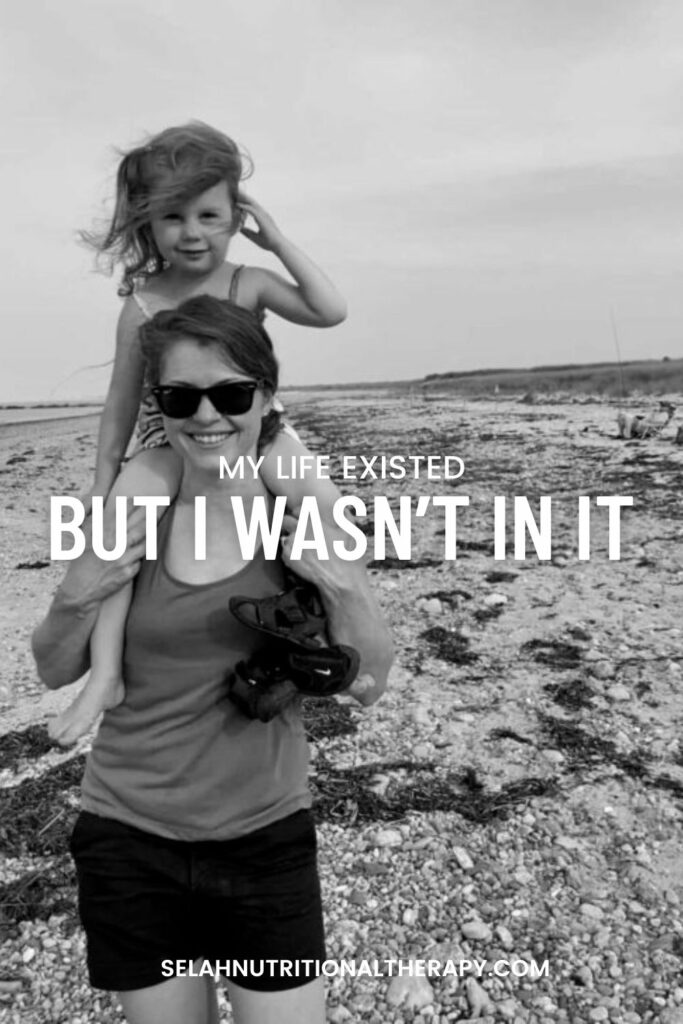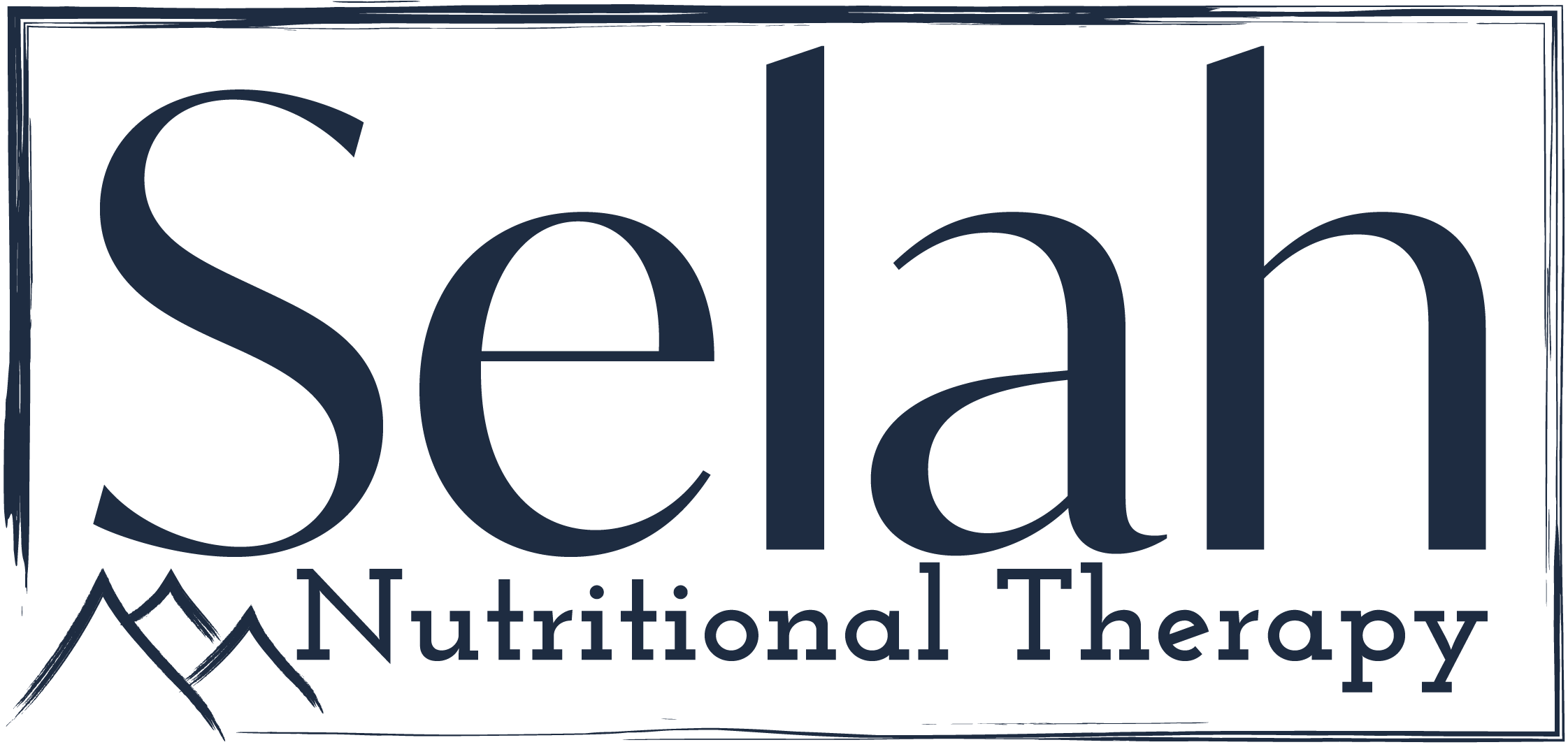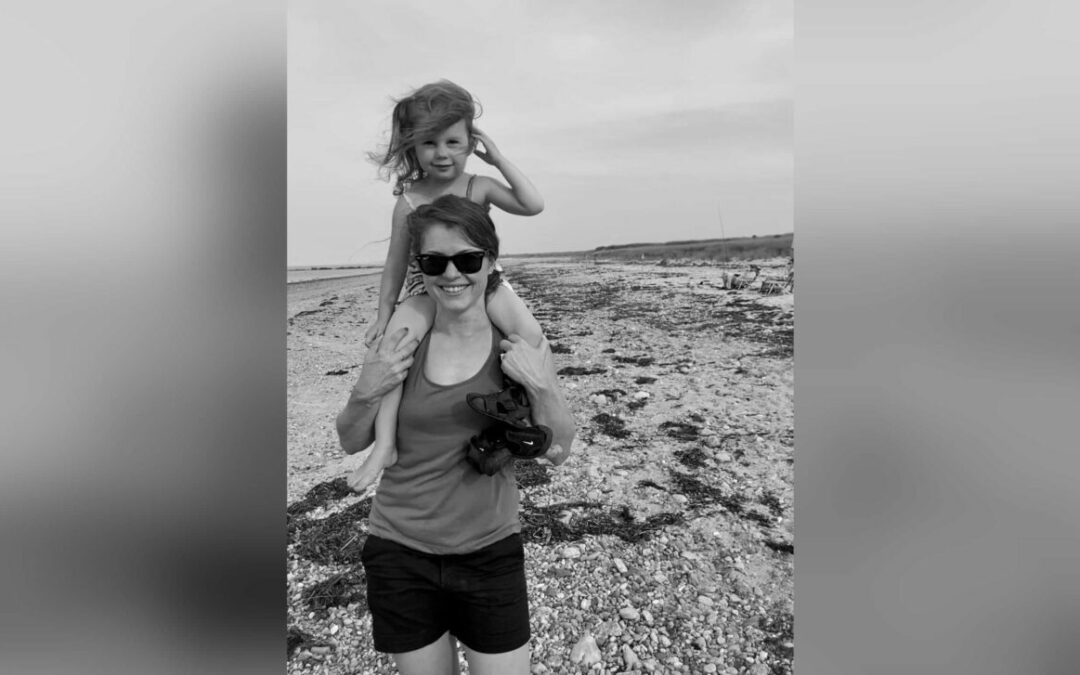The following is my writing for a publication from Her View From Home titled My life existed but I wasn’t in it.
To find out how you can submit your own story to their publication, click here.
Inside my home, there are journals filled with angry words and graphic thoughts detailing my spiral into madness while having no idea what was happening to me.
No one knows this. No one knows how bad it really was—the details I’ve never even shared with my therapist. I was too ashamed to admit what I was going through to people in my life. No one had noticed that while my life existed, I wasn’t in it.
We still showed up for all the family events and obligations, our responsibilities were addressed. Our kids were loved and cared for. We went on vacations, took pictures, and it was a great show. No one knew how hard it was for us to smile. I say us, because while I was the only one experiencing OCD, my husband was witnessing the love of his life disappear under an illness we didn’t understand.
I did share parts of my experience with a few of my closest friends, but no one really knows how to talk about it. I minimized the depth of my illness. How could they understand that the real me was so haunted and traumatized when I acted so normal in front of everyone? We existed in complete survival mode while hiding what was truly going on. It was isolating.
I couldn’t heal. My wounds were constantly open. My stamina evaporated more and more each day. Somewhere in the middle of the worst of my illness, I showed my second child a video of her learning to walk that was taken years prior to my sickness. As I cheered her on in the video she asked, “Who is that—who’s voice is that?” She didn’t even recognize the sound of my voice. “That’s not you!” She was adamant.
My husband and I looked at each other both knowing why she didn’t recognize my voice—because I sounded happy. My voice had life in it.
After I completed the exposure therapy, I recovered well enough that I could function better in real life and I was so thankful for coming so far in my recovery. But, I was still suffering—and how do I explain that to people? The issue I was having years ago . . . it still affects me every day. I still spend days grieving the loss of my mind. The show is exhausting, constantly holding it together, extra eyeliner to hide the evidence of my latest panic attack.
Recovery is different than I expected. Some parts are better. I really wanted recovery to be life back to normal. No memories of the ugliness of mental illness. No more pain in my chest while I take the kids on an adventure. No more compulsions I don’t want to do. No more panic.
But it’s different. My perspective is different. I can be alone with my thoughts, and I’m not scared anymore. I can enjoy loud music again. I can read books again. I don’t exist in the upside-down anymore. I feel present in the space in front of me. I gained compassion for others, and I know I am stronger. It’s not what I wanted or hoped for. But it’s good, and I feel at rest.
I stayed silent at dinner when an old friend briefly mentioned her personal experience with depression. While I could understand why she was glossing over it, I knew there was so much more she wasn’t saying.
It’s funny how under the stories we share, there are all these other stories that are never spoken. The images in our mind when the subject is brought up. We don’t say anything. It’s swallowed. We want the other person to not feel alone, but sharing what it was really like . . . it’s too much. They can’t handle it.
You can’t handle it. You don’t want to repeat it. You don’t want to remember it and how bad it really was. This unspoken part of our lives that is hidden, sugar-coated, briefly mentioned while waving it off. Yet it changed you—more than any other thing.
You are thankful for others who are willing to share and uncover their stories. But yours are too heavy to bring to the surface. To repeat. To make real again.
Because something happens to our bodies when we relive the moment. And our brains aren’t willing to lose our sense of safety by visiting that moment again. So you stay silent.
For all those with unspoken stories, memories you wish to not remember, and moments you can’t forget—you aren’t alone.
You can read more of my story of sudden onset OCD here.
For personalized support in treating OCD, click here.
I created a free mini course teaching the same principles I used to heal right here.



